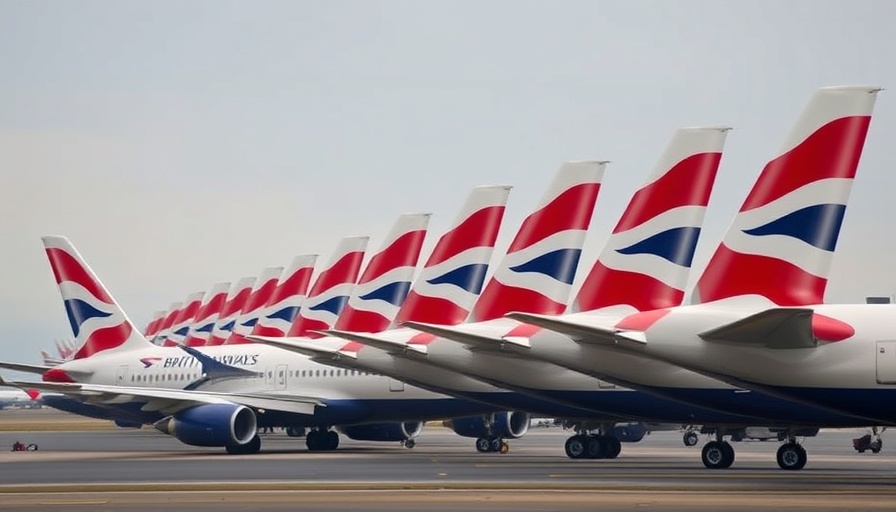
AI Revolutionizing the Airline Industry
Amidst the chaos typical of air travel, innovations in technology promise to lighten the burden facing passengers. Recently, the CEO of British Airways claimed that artificial intelligence (AI) has emerged as a ‘game-changer,’ leading to significant reductions in flight delays. This assertion not only sheds light on the operational improvements that AI brings but also reflects a broader trend within industries, particularly within Silicon Valley startups, to leverage technology for enhanced efficiency.
How AI Is Transforming Flight Operations
According to various reports, AI has allowed British Airways to optimize its scheduling and resource allocation processes. By analyzing vast amounts of data, the airline can predict potential delays caused by weather conditions or other operational factors. This predictive capability enables proactive adjustment of schedules, minimizing disruptions.
This AI integration is part of a larger movement within the tech industry, where businesses are increasingly focused on digital transformation to increase efficiency and enhance customer experiences. Whether in transportation or e-commerce, companies are investing heavily in AI and related technologies to stay competitive.
The Connection Between AI and Improved Customer Experience
For travelers, the potential benefits are clear. Shorter wait times, more reliable service, and reduced overall travel stress all stem from AI's ability to streamline operations. In Silicon Valley, innovation firms are utilizing similar algorithms to enhance customer experience in sectors like retail and hospitality, illustrating that the application of AI is not limited to just one industry.
Challenges Facing AI in the Airline Sector
Despite the clear advantages, the integration of AI into airline operations is not without challenges. Concerns about data privacy and the need for comprehensive regulatory frameworks are paramount, especially as the airline sector navigates varying business regulations across different regions. Furthermore, there is the risk of over-reliance on technology; human oversight remains crucial to address unexpected situations such as equipment failures or emergencies, which technology alone cannot manage effectively.
Relevant Trends in Business and Travel
The push toward AI-enhanced efficiency in the airline industry parallels trends among startups in the Bay Area that focus on sustainable business practices and corporate social responsibility. With emerging economic forecasts predicting a recovery in global travel demand, the expectation is that airlines will continue investing in technology-driven solutions to cater to the evolving traveler preferences.
Future Predictions: What's Next for Airlines?
As artificial intelligence continues to advance, the potential for further reductions in flight delays is substantial. Strategies that include enhanced training for staff to effectively collaborate with AI systems, alongside improved customer service mechanisms, could soon become standard. Thoughts among industry leaders suggest that soon we might see a complete overhaul of current airline operations powered by continuous-learning AI systems.
Conclusion: Embracing Technological Change in Travel
Changing travel dynamics point towards a future where AI’s footprint expands even further. As British Airways demonstrates, embracing technology can yield tangible benefits, from better managing delays to improving the passenger experience. What remains crucial is maintaining a balance between innovation and traditional operational standards to ensure the reliability and safety that travelers have come to expect.
 Add Row
Add Row  Add
Add 



Write A Comment